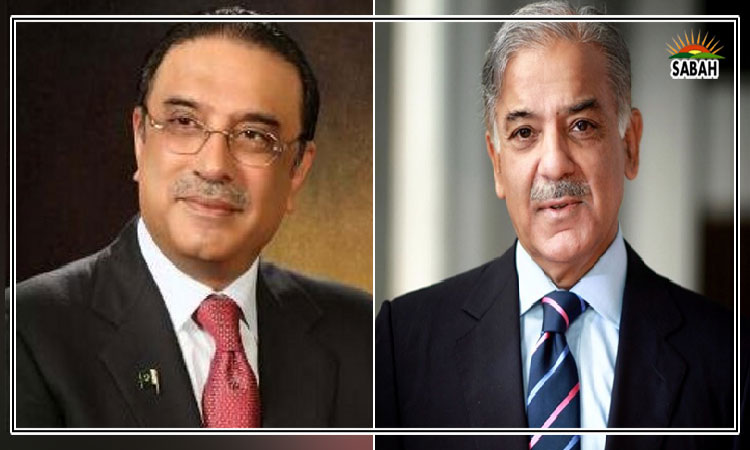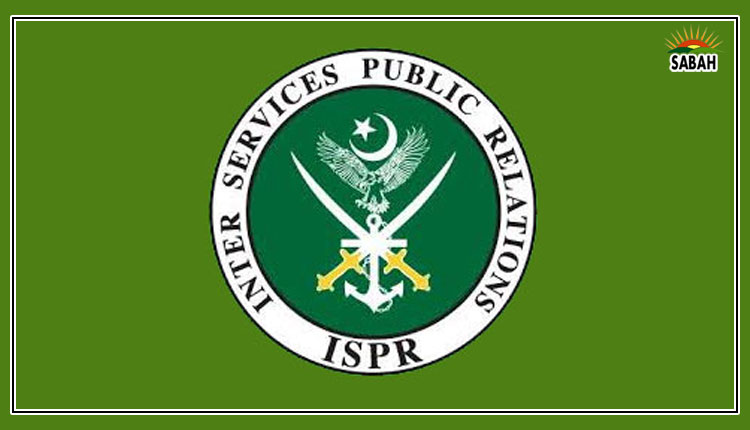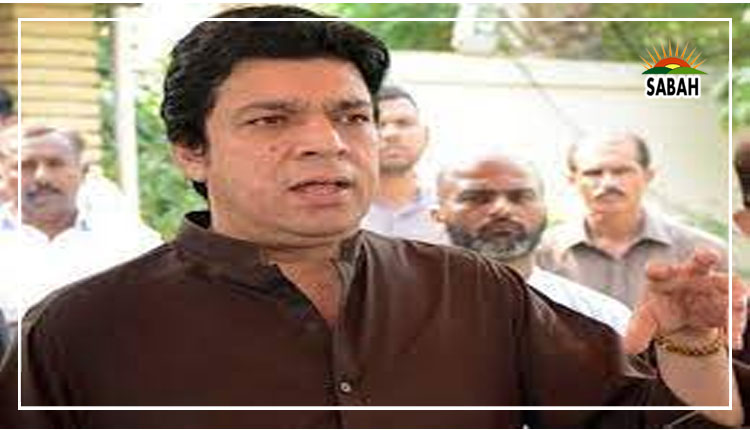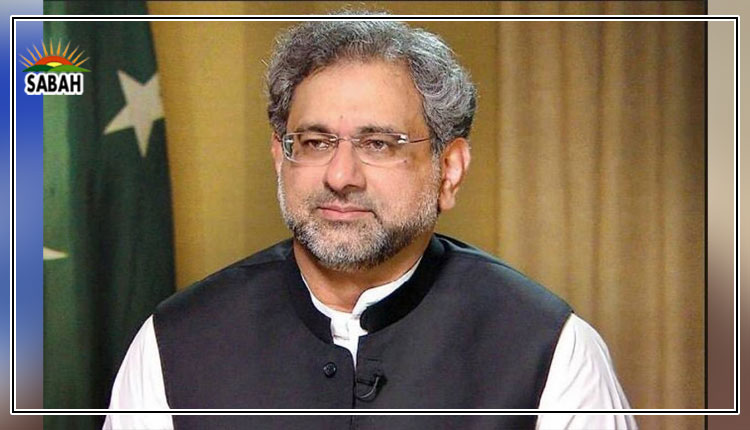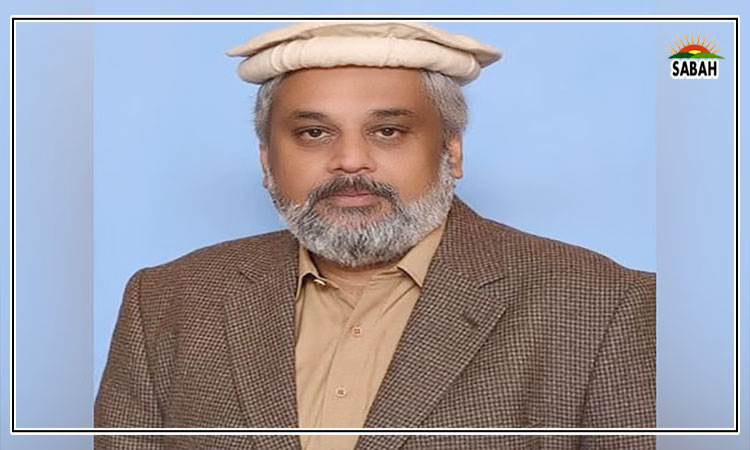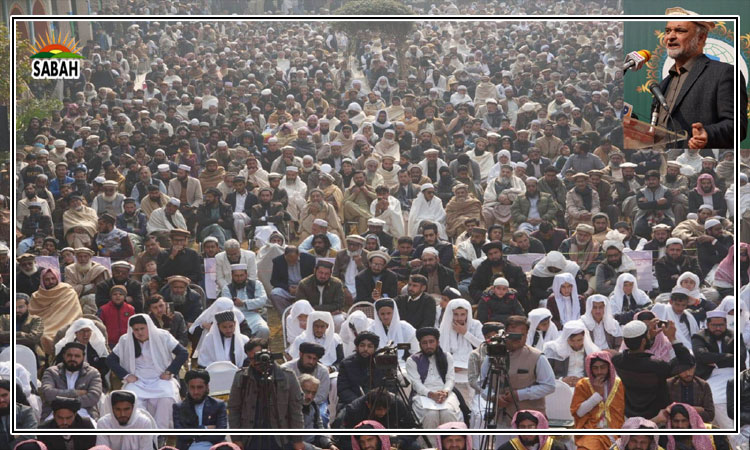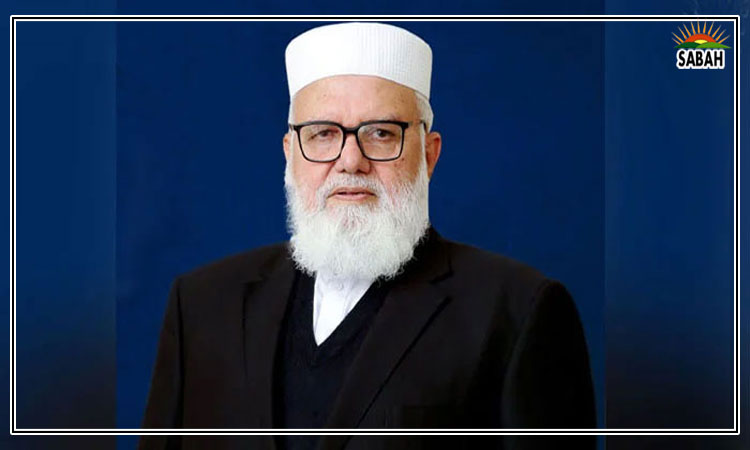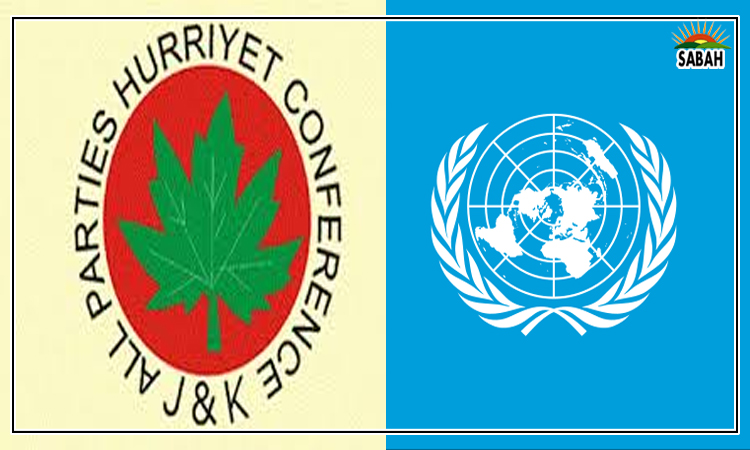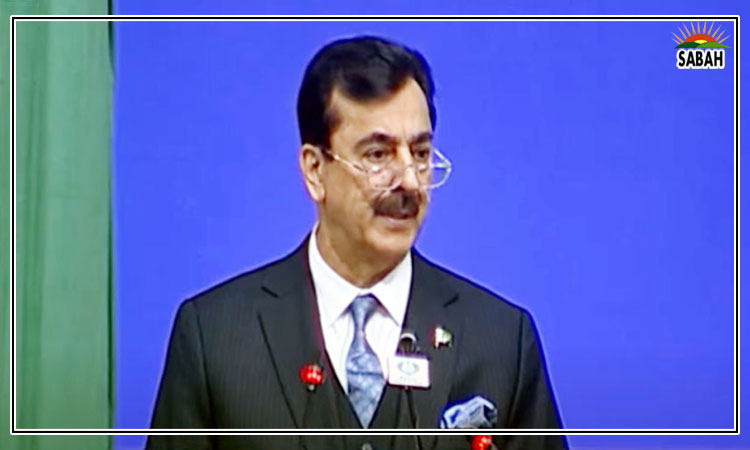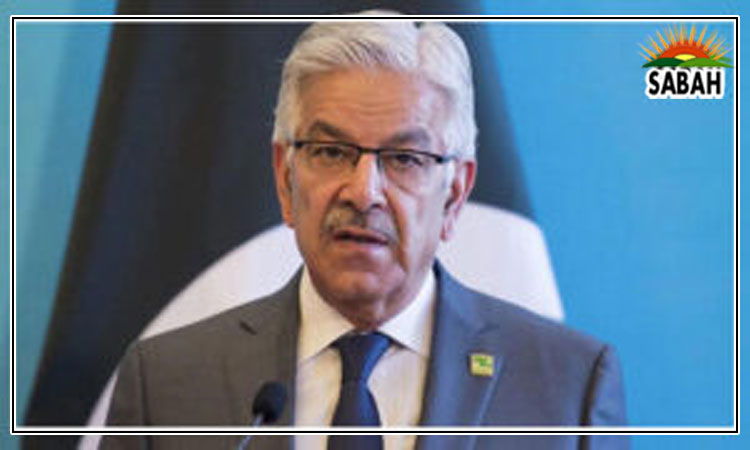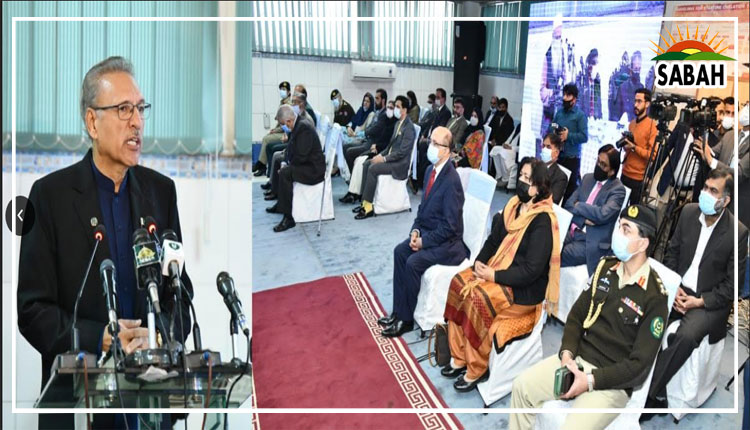Premarital screening could act as a supportive step in controlling life-threatening blood disorder: President Alvi
RAWALPINDI, Feb 23 (SABAH): President Dr. Arif Alvi on Wednesday said raising awareness about Thalassaemia and its prevention through screening of individuals before marriage could prove helpful in reducing chances of its transmission to the next generation.
Addressing the inauguration ceremony of Bone Marrow Transplant Centre under the Pakistan Thalassaemia Welfare Society (PATHWEL), he said premarital screening could act as a supportive step in controlling the life-threatening blood disorder.
President Dr. Arif Alvi; however, pointed out that mass screening at the present stage was not feasible and therefore required awareness about conducting targeted medical tests as a preemptive measure.
He said pre-marriage counseling by the Khyber Pukhtunkhwa government was offering guidance on various health-related issues and proposed that awareness about Thalassaemia could be included in the module.
He lauded doctors at the Bone Marrow Transplant Centre volunteering their services for the Thalassaemia patients and also acknowledged donors and philanthropists for financially supporting the costly treatment.
On the legislation regarding organ donation, he stressed that a set of commonly adopted recommendations by the medical community could be more effective and helpful for the government in taking a course on the important matter.
The president highlighted the importance of a preventive approach in controlling several other diseases such as diabetes through a balanced diet, hepatitis by means of single-use syringes and even COVID-19 through frequent handwashing.
President PATHWEL Maj. Gen. (retd) Suhaib Ahmed said Thalassaemia is an inherited blood disorder characterized by decreased production of haemoglobin and thus needed a regular blood transfusion from a healthy person.
He said the Bone Marrow Transplant Centre, the first such facility in the non-governmental sector, was a significant development in a country where nearly 10 percent of families were Thallasaemia carriers.
He said Pakistan had a total of up to 100,000 Thalassaemia patients which led to around 5,000 to 6,000 annual births with the disease.
He mentioned that 35 percent of the total blood donation in the country was being utilized by child Thalassaemic patients.
He said Bone Marrow Transplant Centre would provide free-of-cost transplant services to the patients besides its future plan of setting up a molecular laboratory and indoor haematology ward.
He called upon the government to consider linking up the Centre with the national health card and Baitul Maal to financially sustain the facility.
Major General (retd) Pervaiz Ahmed, the bone marrow transplant surgeon, said Pakistan had a high prevalence of blood disorders including Thalassaemia, Hemophilia and other immunodeficiency disorders.
He said the Centre would offer a comprehensive system, while an advanced blood bank would also be established in future.
Later, the president visited the Bone Marrow Transplant Centre where he was given a briefing about its working. The event was attended by doctors and members of the Pakistan Thalassaemia Welfare Society.


